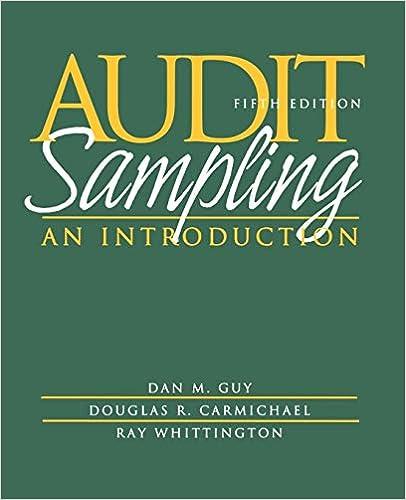Question
1. Which of the following costs is not relevant in a special-order decision? A. Direct labor B. Direct materials C. Variable overhead D. Fixed overhead
1. Which of the following costs is not relevant in a special-order decision? A. Direct labor B. Direct materials C. Variable overhead D. Fixed overhead
2. Costs that change across decision alternatives are A. accounting costs. B. activity-based costs. C. incremental costs. D. capital costs.
4. The potential benefit of one alternative that is lost by choosing another is known as a(n): A. Sunk cost B. Out-of-pocket cost C. Differential cost D. Opportunity cost
5. A cost that cannot be avoided or changed because it arises from a past decision, and is irrelevant to future decisions, is called a(n): A. Uncontrollable cost B. Incremental cost C. Opportunity cost D. Sunk cost
6. An additional cost that is incurred only if a particular action is taken is a(n): A. Period cost B. Pocket cost C. Discount cost D. Incremental cost
7. The payback period: a. Is the length of time necessary to recover the entire cost of an investment from its resulting annual net cash flow. b. Is the length of time necessary to recover the entire cost of an investment from its resulting annual net income. c. Takes into consideration the profitability of an investment over its entire life, but ignores the timing of its future cash flows. d. Takes into consideration both the profitability of an investment over its entire life and the timing of its future cash flows.
Step by Step Solution
There are 3 Steps involved in it
Step: 1

Get Instant Access to Expert-Tailored Solutions
See step-by-step solutions with expert insights and AI powered tools for academic success
Step: 2

Step: 3

Ace Your Homework with AI
Get the answers you need in no time with our AI-driven, step-by-step assistance
Get Started


